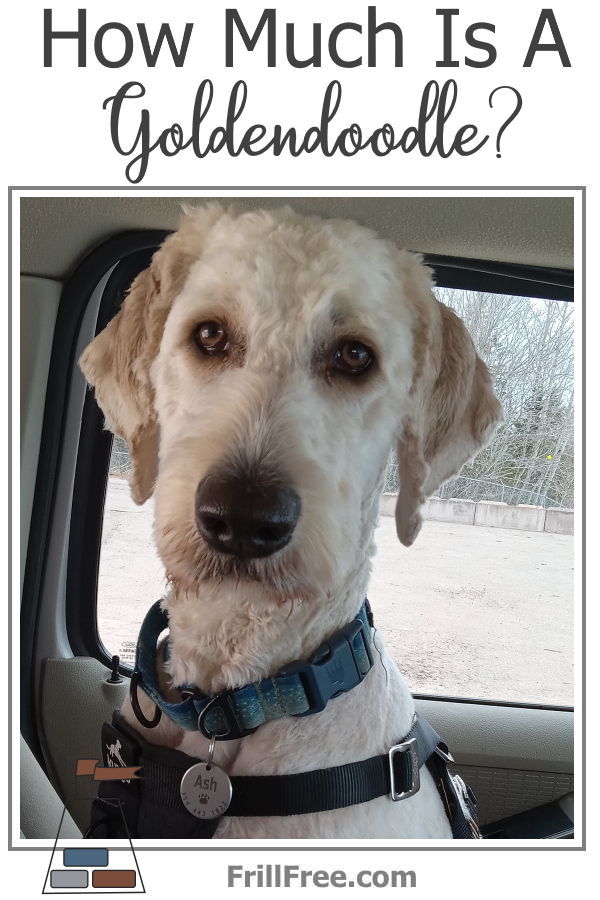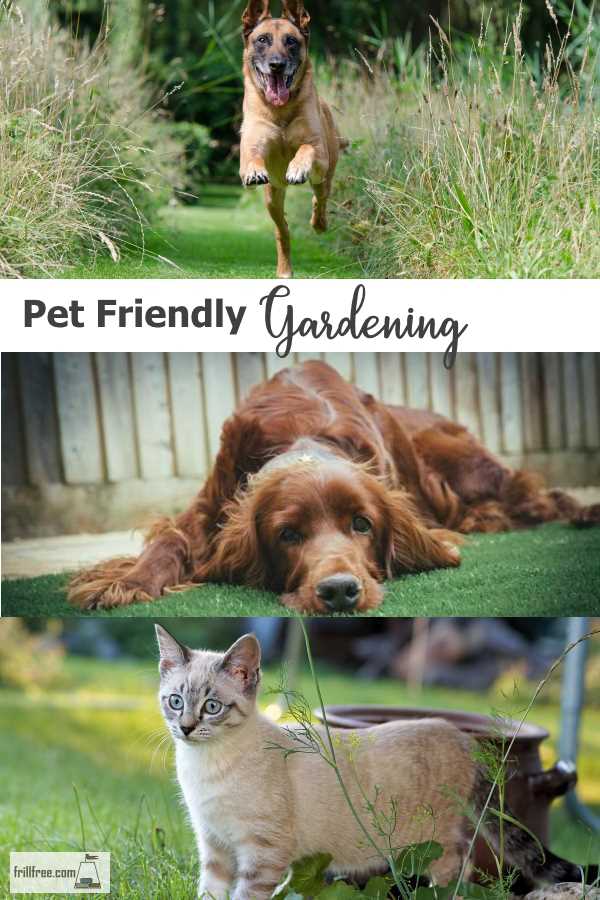- Homesteading
- Service Dog DIY
- How Much is a Goldendoodle?
How Much is a Goldendoodle?
Goldendoodles are rightfully popular as family dogs, for sports like rally and agility, as well as just all round fun dogs.
They are being increasingly bred for service work, and for guide dogs and therapy dogs as they are smart and trainable, due to their poodle ancestry.
The golden retriever part of their genetics will account for a lot of their athleticism, as well as their friendly temperament.
Some people refer to them as a 'designer dog', a slightly derogatory term to mean they are two breeds that are bred together to make a third.
Some common types you might see are standard goldendoodle, meaning a cross between a standard poodle and a golden retriever, a miniature goldendoodle, (or mini goldendoodle) which is a toy poodle crossed with a very small golden retriever, and medium goldendoodles which are again, a medium sized poodle and a mid sized golden retriever.
The Goldendoodle Association of North America (GANA) has some good information about all the different types on their website. Although these dogs are not currently accepted by the American Kennel Club, this could change in the future as this breed becomes ever more popular.
All these dog breeds can have their own challenges and health problems, which this mixing of breeds was meant to correct, and has done to some extent. There is no health guarantee, as such, when buying any kind of goldendoodle puppies.
What's The Best Kind Of Coat?
Goldendoodles are a mixed bag as far as curly coats or straight, although any reputable breeder will be trying to standardize coat type and energy level.
A wavy coat is the most desirable for those that don't wish to have the very curly hair of those puppies with a high percentage of poodle genetics.
The big difference here is the curly coated types tend to be lower shedding and more hypoallergenic, although they have higher maintenance and brushing needs.
The trade off is less puppy fluff, and no dander to speak of, although individual puppies will differ in this aspect. Even dogs from the same litter will inherit different traits, but over time the breed will become much more consistent as regards genetic traits.
What To Watch For When Searching For Your Goldendoodle Puppy
Breeding dogs has become very commonplace, with many backyard breeders popping up everywhere. Be cautious of these dog breeders - just breeding your two family pet dogs together with no regard to any genetic incompatibilities, and no testing is a recipe for disaster.
Shy completely away from puppy mills for your goldendoodle puppy.
They do not have the dogs best interest in mind, and the goldendoodle price of their stock will reflect this.
They simply churn out puppies regardless of the health of the adult dogs, plus they do not give any thought to early education of the puppies.
The result can be a dog with severe separation anxiety, health issues like hip dysplasia, and many more psychological and physical problems.
The high demand for a certain coat color, or larger goldendoodles for service work, or even just a dog with no serious health problems means that the average cost for one of these dogs is only going to go up.
Breeder reputation for raising good dogs with fewer issues is worth its weight in gold. Any goldendoodle breeder that will give you a healthy dog that is a good fit for your family and your needs is more important than offering many different sizes of dogs.
The breeder that will concentrate on a single size of puppy, with physical attributes like lower maintenance coats, good hips, elbows and eyes based on health testing of the adult breeding dogs is going to be your friend.
First-generation goldendoodles means they are breeding the two separate purebred dogs together. So a poodle mother bred by a purebred golden retriever dog, or vice versa.
Multigeneration goldendoodles are multiple generations of the mixed breeds, sometimes for six or more generations. This fixes the genetics to a degree, making each succeeding generation a bit more stable than the last.
Things like patterned coats, unique coloring, and above all, temperament and health, become more ingrained, as a rule of thumb.
Regardless of that, it's a good idea to have pet insurance to take care of any eventuality such as a genetic problem that can be treated by medication, or accidents. All dog owners need a pet insurance plan that takes into consideration their lifestyle and needs.
If you're lucky enough to find any adult goldendoodles at a rescue or the humane society in your area, the adoption fees will be much less than the cost of a goldendoodle puppy from a breeder.
Depending on whether it is just a pet owner who wants a companion, or a disabled person needing a service dog, sometimes adopting from a shelter will work perfectly.
A dog that will need to being active for long periods of time such as for some sports should be assessed for their fitness level, and to make sure they have no underlying health concerns.
Price and Costs Associated With Goldendoodles
The price of a goldendoodle can be upwards of $2000, and if it's got an unusual coloring, or some other type of rarity, you can expect to pay more.
Why pay more for a different coat color? Some people don't mind having a unique animal to cosset, and show off to their friends.
Additional costs can include grooming, nail trims, dental care and a dog walker, if needed.These will all vary according to what's available in your area, and if it's a concern for you, do some digging to find the best price.
Grooming Costs for Goldendoodles
A lot of groomers are not taking new clients, and some are especially leery of any double coated dog, due to the need for the dog owner to take up the slack in between professional grooming.
A lot of goldendoodle owners tend towards learning how to groom their own dogs, which makes it easier for the professional groomer to do a proper job if the coat has been maintained in between.
This means the purchase of scissors, a brush or slicker, comb, and maybe electric clippers. These are all reasonably priced bought separately, but get a whole kit with two clippers, one small for in between paw pads, the other one larger for the main part of the body, some combs that give different lengths, and various other accessories for under $70. This will be perfectly adequate, there's no need for the absolute best quality such as a professional groomer would buy.
Some groomers will do nail trims for a reduced price if that's all the dog needs.
Train your puppy right from the start to be okay with their feet, ears, tail and all other parts being handled, and grooming will be a cinch. Cooperative husbandry or care will make it a lot easier to groom and in an emergency, rather than needing to muzzle your dog so the vet can get close to them.
Groomers generally charge around $130 to $180 per groom, depending on things like bathing, extra clipping if the coat is matted, and so on.
Other Costs
Dental care will vary, from simple tooth brushing, to dealing with cracked teeth from too hard of bones or antlers, to cavities and decay. Keep your dogs teeth clean with the use of things to chew on, and check them often in case they need care.
The main factors that influence the purchase price are the dog's size and the genetic testing of the breeding pair. Another thing to consider is the amount of food the size of dog will need, over and above the purchase price of your new puppy.















